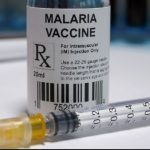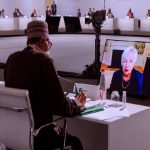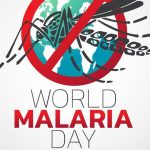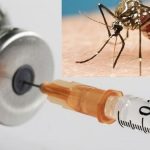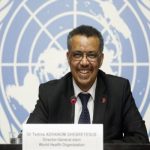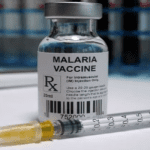African countries are gearing up to approve a new malaria vaccine, with 20 million doses available for purchase this year.
Nigeria’s pharmaceutical regulatory authority joined Ghana in supporting the new R21 vaccination this week, making them the first countries in the world to do so.
Oxford University scientists created this vaccine, which is manufactured by the Serum Institute of India.
At present, there is a lack of public access to comprehensive information regarding the malaria vaccine’s outcomes in large-scale trials.
Additionally, it remains uncertain how low-income countries will afford the cost of the vaccination.
However, the urgency of addressing a disease that kills more than 600,000 people annually, most of them children under age 5 in Africa south of the Sahara, and recent efforts to enhance drug oversight in the region, are changing the process.
The World Health Organization stated in a high-level meeting this week that regulatory authorities from at least 10 African countries are currently examining trial data to evaluate the vaccine.
It is anticipated that additional countries will grant approval for the vaccine in the next few weeks.
The countries that could be affected were not specifically identified by her.
Tanzania and Kenya have stringent regulatory bodies and comparatively high prevalence rates of the illness.
African countries are gearing up to approve a new malaria vaccine, with 20 million doses available for purchase this year.
Nigeria’s pharmaceutical regulatory authority joined Ghana in supporting the new R21 vaccination this week, making them the first countries in the world to do so.
Oxford University scientists created this vaccine, which is manufactured by the Serum Institute of India.
At present, there is a lack of public access to comprehensive information regarding the malaria vaccine’s outcomes in large-scale trials.
Additionally, it remains uncertain how low-income countries will afford the cost of the vaccination.
However, the urgency of addressing a disease that kills more than 600,000 people annually, most of them children under age 5 in Africa south of the Sahara, and recent efforts to enhance drug oversight in the region, are changing the process.
The World Health Organization stated in a high-level meeting this week that regulatory authorities from at least 10 African countries are currently examining trial data to evaluate the vaccine.
It is anticipated that additional countries will grant approval for the vaccine in the next few weeks.
The countries that could be affected were not specifically identified by her.
Tanzania and Kenya have stringent regulatory bodies and comparatively high prevalence rates of the illness.
African countries are gearing up to approve a new malaria vaccine, with 20 million doses available for purchase this year.
Nigeria’s pharmaceutical regulatory authority joined Ghana in supporting the new R21 vaccination this week, making them the first countries in the world to do so.
Oxford University scientists created this vaccine, which is manufactured by the Serum Institute of India.
At present, there is a lack of public access to comprehensive information regarding the malaria vaccine’s outcomes in large-scale trials.
Additionally, it remains uncertain how low-income countries will afford the cost of the vaccination.
However, the urgency of addressing a disease that kills more than 600,000 people annually, most of them children under age 5 in Africa south of the Sahara, and recent efforts to enhance drug oversight in the region, are changing the process.
The World Health Organization stated in a high-level meeting this week that regulatory authorities from at least 10 African countries are currently examining trial data to evaluate the vaccine.
It is anticipated that additional countries will grant approval for the vaccine in the next few weeks.
The countries that could be affected were not specifically identified by her.
Tanzania and Kenya have stringent regulatory bodies and comparatively high prevalence rates of the illness.
African countries are gearing up to approve a new malaria vaccine, with 20 million doses available for purchase this year.
Nigeria’s pharmaceutical regulatory authority joined Ghana in supporting the new R21 vaccination this week, making them the first countries in the world to do so.
Oxford University scientists created this vaccine, which is manufactured by the Serum Institute of India.
At present, there is a lack of public access to comprehensive information regarding the malaria vaccine’s outcomes in large-scale trials.
Additionally, it remains uncertain how low-income countries will afford the cost of the vaccination.
However, the urgency of addressing a disease that kills more than 600,000 people annually, most of them children under age 5 in Africa south of the Sahara, and recent efforts to enhance drug oversight in the region, are changing the process.
The World Health Organization stated in a high-level meeting this week that regulatory authorities from at least 10 African countries are currently examining trial data to evaluate the vaccine.
It is anticipated that additional countries will grant approval for the vaccine in the next few weeks.
The countries that could be affected were not specifically identified by her.
Tanzania and Kenya have stringent regulatory bodies and comparatively high prevalence rates of the illness.
African countries are gearing up to approve a new malaria vaccine, with 20 million doses available for purchase this year.
Nigeria’s pharmaceutical regulatory authority joined Ghana in supporting the new R21 vaccination this week, making them the first countries in the world to do so.
Oxford University scientists created this vaccine, which is manufactured by the Serum Institute of India.
At present, there is a lack of public access to comprehensive information regarding the malaria vaccine’s outcomes in large-scale trials.
Additionally, it remains uncertain how low-income countries will afford the cost of the vaccination.
However, the urgency of addressing a disease that kills more than 600,000 people annually, most of them children under age 5 in Africa south of the Sahara, and recent efforts to enhance drug oversight in the region, are changing the process.
The World Health Organization stated in a high-level meeting this week that regulatory authorities from at least 10 African countries are currently examining trial data to evaluate the vaccine.
It is anticipated that additional countries will grant approval for the vaccine in the next few weeks.
The countries that could be affected were not specifically identified by her.
Tanzania and Kenya have stringent regulatory bodies and comparatively high prevalence rates of the illness.
African countries are gearing up to approve a new malaria vaccine, with 20 million doses available for purchase this year.
Nigeria’s pharmaceutical regulatory authority joined Ghana in supporting the new R21 vaccination this week, making them the first countries in the world to do so.
Oxford University scientists created this vaccine, which is manufactured by the Serum Institute of India.
At present, there is a lack of public access to comprehensive information regarding the malaria vaccine’s outcomes in large-scale trials.
Additionally, it remains uncertain how low-income countries will afford the cost of the vaccination.
However, the urgency of addressing a disease that kills more than 600,000 people annually, most of them children under age 5 in Africa south of the Sahara, and recent efforts to enhance drug oversight in the region, are changing the process.
The World Health Organization stated in a high-level meeting this week that regulatory authorities from at least 10 African countries are currently examining trial data to evaluate the vaccine.
It is anticipated that additional countries will grant approval for the vaccine in the next few weeks.
The countries that could be affected were not specifically identified by her.
Tanzania and Kenya have stringent regulatory bodies and comparatively high prevalence rates of the illness.
African countries are gearing up to approve a new malaria vaccine, with 20 million doses available for purchase this year.
Nigeria’s pharmaceutical regulatory authority joined Ghana in supporting the new R21 vaccination this week, making them the first countries in the world to do so.
Oxford University scientists created this vaccine, which is manufactured by the Serum Institute of India.
At present, there is a lack of public access to comprehensive information regarding the malaria vaccine’s outcomes in large-scale trials.
Additionally, it remains uncertain how low-income countries will afford the cost of the vaccination.
However, the urgency of addressing a disease that kills more than 600,000 people annually, most of them children under age 5 in Africa south of the Sahara, and recent efforts to enhance drug oversight in the region, are changing the process.
The World Health Organization stated in a high-level meeting this week that regulatory authorities from at least 10 African countries are currently examining trial data to evaluate the vaccine.
It is anticipated that additional countries will grant approval for the vaccine in the next few weeks.
The countries that could be affected were not specifically identified by her.
Tanzania and Kenya have stringent regulatory bodies and comparatively high prevalence rates of the illness.
African countries are gearing up to approve a new malaria vaccine, with 20 million doses available for purchase this year.
Nigeria’s pharmaceutical regulatory authority joined Ghana in supporting the new R21 vaccination this week, making them the first countries in the world to do so.
Oxford University scientists created this vaccine, which is manufactured by the Serum Institute of India.
At present, there is a lack of public access to comprehensive information regarding the malaria vaccine’s outcomes in large-scale trials.
Additionally, it remains uncertain how low-income countries will afford the cost of the vaccination.
However, the urgency of addressing a disease that kills more than 600,000 people annually, most of them children under age 5 in Africa south of the Sahara, and recent efforts to enhance drug oversight in the region, are changing the process.
The World Health Organization stated in a high-level meeting this week that regulatory authorities from at least 10 African countries are currently examining trial data to evaluate the vaccine.
It is anticipated that additional countries will grant approval for the vaccine in the next few weeks.
The countries that could be affected were not specifically identified by her.
Tanzania and Kenya have stringent regulatory bodies and comparatively high prevalence rates of the illness.



